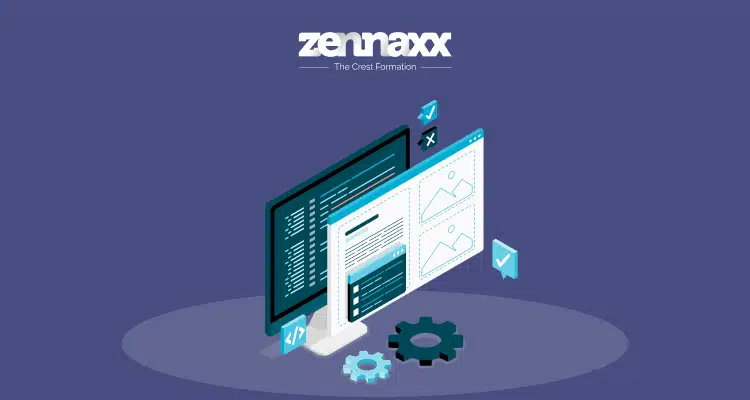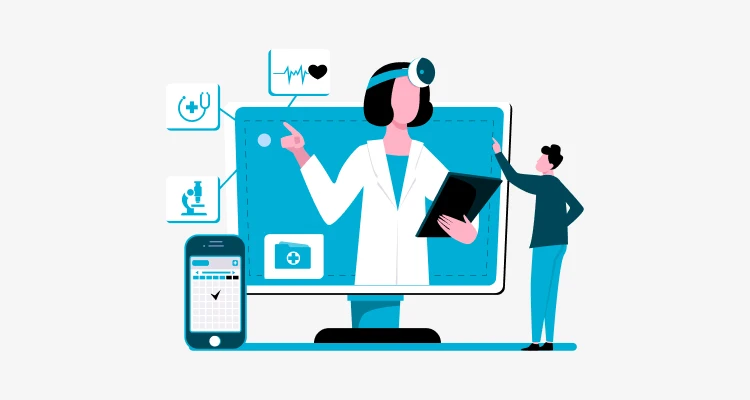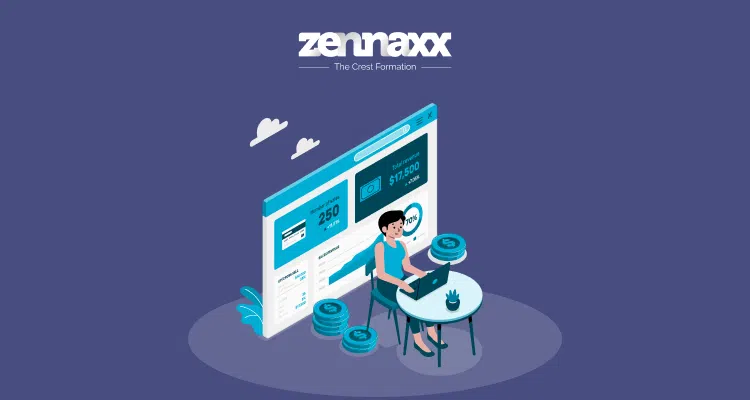In this rapidly evolving landscape, it’s important to understand how technology can address critical problems in healthcare in order to create innovative solutions that enhance patient satisfaction and drive business growth.

How Digital Healthcare is Transforming the Medical Industry
How to Solve Healthcare Problems with Technology?
This process involves identifying the specific challenges faced by the healthcare industry, understanding the potential technological solutions, and implementing these solutions in a way that improves healthcare delivery and patient outcomes.
Problem 1: Lack of Remote Access to Healthcare Services
Solution : Invest in Building Healthcare Mobile and Web Applications
Healthcare mobile and web applications can bridge the gap between underserved areas and quality healthcare services by providing telemedicine services, remote monitoring, and virtual consultations.
Healthcare apps also offer features such as appointment scheduling, medication reminders, and access to medical records to enhance patient engagement and adherence to treatment plans.
Problem 2: Healthcare Professionals Operate in Siloes
Solution : Create Social Networking Apps for Healthcare Professionals
A social networking app specifically designed for healthcare professionals can foster collaboration and knowledge sharing.
It can also provide a platform for sharing best practices and staying updated with the latest research and developments.
Problem 3: Challenges with Medicare and Medicaid Reimbursement
Solution : Build a Medicare and Medicaid EHR System
EHR systems can automate billing, reduce paperwork, and ensure accurate and timely reimbursements.

Problem 4: Poor Supply Management System
Without a robust supply management system, hospitals and clinics may face shortages, overstocking, and wastage.
Solution : Build Data Management Systems
Data management systems optimize supply chain operations by providing real-time tracking and inventory management.
Problem 5: Handling Large Volumes of Patient-Related Data
Solution : Build Solutions With Cloud and Data Analytics Capabilities
Managing large volumes of patient-related data effectively requires building healthcare apps with robust cloud storage and data analytics capabilities.
Cloud-based solutions provide scalable storage solutions. They can store vast amounts of data securely and make it accessible from anywhere.
Ready to Transform Your Healthcare Experience with Innovative Software?
Have questions or ready to take the next step? Reach out to us today and let’s innovate together.
Problem 6: Inefficient Data Sharing
Solution : Utilize Blockchain-Based Database
Problem 7: Lack of Online Pharmaceutical Stores
Solution : Launch Prescription-Based Online Medical Stores
Online pharmaceutical stores offer features such as home delivery services, prescription management, and automated refills, ensuring that patients have timely access to their medications.
Problem 8: Lack of Early Warning Healthcare Devices
Solution : Introduce the Internet of Medical Things (IoMT)
Problem 9: Lack of mHealth Applications
Solution : Launch mHealth Applications for Patients
mHealth application development enables healthcare providers to enhance patient engagement, promote healthy lifestyles, and provide personalized health advice.
With features like fitness tracking, dietary advice, mental health support, and chronic disease management tools, mHealth apps provide patients with valuable resources at their fingertips.
These apps can also be integrated with wearable devices to provide a holistic view of the user’s health.
Problem 10: Slow Pace of Modern Solutions
Solution : Genome Editing Technology (GET)
Want to Automate Your Business Process With a Software Solution?
Zennaxx, a leading software development firm in Canada, has delivered 700+ bespoke solutions spanning various industries.
What is the Future of Technology in Healthcare?
Healthcare Business Ideas
Now let’s consider some healthcare business ideas that leverage technology to address critical problems in healthcare, improve efficiency, and enhance the quality of patient care:
Telehealth Platform
Mobile Health (mHealth) Apps
Online Pharmacy
AI-Driven Diagnostic Tools
Integrated Healthcare Platform
Conclusion
So now is a good time to leverage this technology to build solutions that can solve many of the most pressing problems in healthcare in order to create a healthier world while generating revenue for your business.
Ready to transform healthcare with cutting-edge technology? Reach out to us for quality health app development services.


